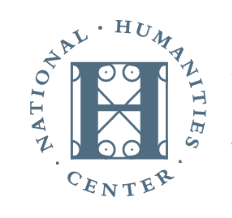National Humanities Center (NHC)

The National Humanities Center is unique: a free standing national resource devoted to advancing significant humanistic study and reflection and to making those insights available both inside and outside the academic world.
Through its Residential Fellowship Program, the Center provides scholars with the resources necessary to generate new knowledge and to further understanding of all forms of cultural expression, social interaction, and human thought.
The Center’s Education Programs strengthen teaching on the collegiate and pre-collegiate levels. Model programs developed at the Center provide teachers and faculty with new materials and instructional strategies to make them more effective in the classroom and rekindle their enthusiasm for the subjects they teach.
Through Public Engagement in the form of community lectures, panel discussions, symposia, and a rich multi-media library, the Center promotes understanding of the humanities and advocates for their foundational role in a democratic society.
The humanities help us understand and interpret the human experience, as individuals and societies.
The National Humanities Center is a private, nonprofit organization, and the only independent institute dedicated exclusively to advanced study in all areas of the humanities. The Center is supported by the generosity of individual donors, grants from private and public foundations, corporate philanthropy, and institutional sponsors—universities and academic organizations whose partnership specifically supports the Center’s fellowship program and public outreach efforts.
The Founding and Creation of the National Humanities Center
The National Humanities Center was formed in the mid-1970s by what started as a tiny group: classicist Gregory Vlastos of Princeton University, medievalist Morton Bloomfield of Harvard University, and literary scholar M. H. Abrams of Cornell University. All three had been in residence at the Center for Advanced Study in Behavioral Sciences in Stanford, CA, in the mid-1960s, where they became convinced that the humanities needed a similar center dedicated to the needs of humanists. They persuaded the American Academy of Arts and Sciences to become involved as well as the American Council of Learned Societies, then under the leadership of Frederick Burkhardt. Planning groups were formed including, at one time or another, such notable figures as Robert Goheen, Daniel Bell, Lionel Trilling, Henry Nash Smith, Hannah Arendt, and Steven Marcus. Read the full story here.